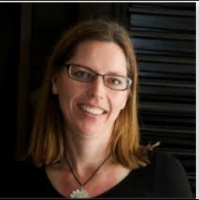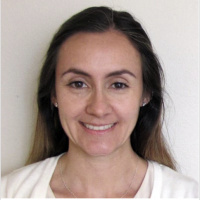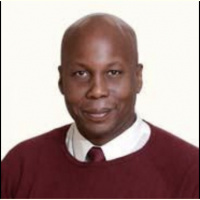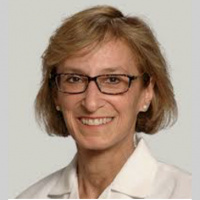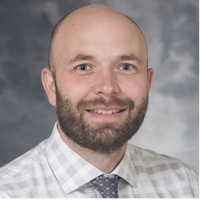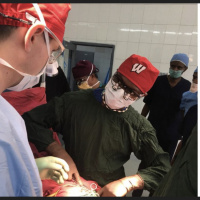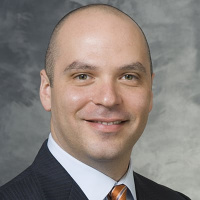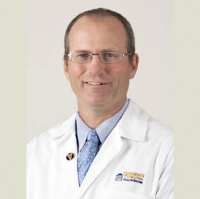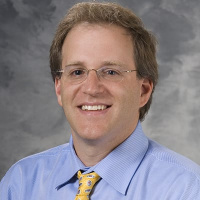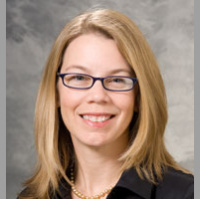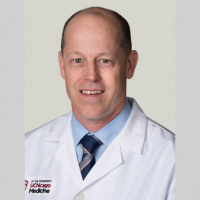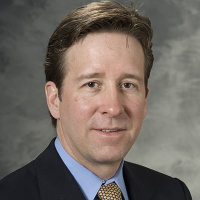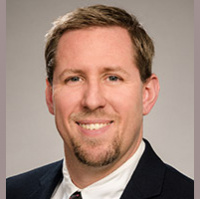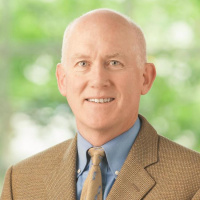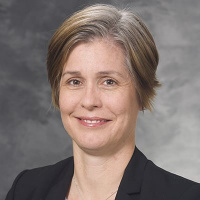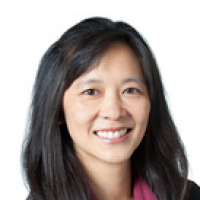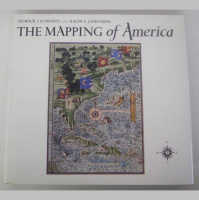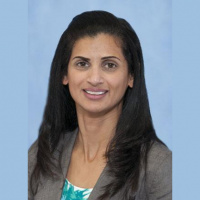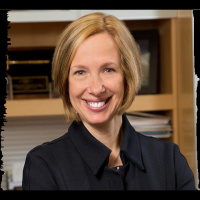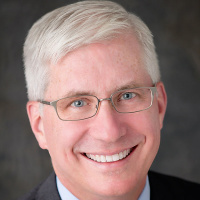Synopsis
Exploring innovations in surgery from the University of Wisconsin.
Episodes
-
Innovations in Surgical Education
15/05/2019 Duration: 20minEpisode 70: Dr. Mary Klingensmith Mary Klingensmith, MD, is a distinguished professor of surgery at Washington University School of Medicine in St. Louis. Dr. Klingensmith is a giant in the field of surgical education. Her long-standing interest in surgical education started at the beginning of her career. She was the chair of the American Board of Surgery in 2017 through 2018 and has been the lead author of the last four editions of The Washington Manual of Surgery.
-
Breaking Cultural Barriers in Medicine
29/04/2019 Duration: 23minEpisode 69: Dr. Tatiana Hoyos Tatiana Hoyos Gomez, MD, is a General Surgery Resident in her fifth year at the UW School of Medicine and Public Health. Dr. Hoyos Gomez gave a Grand Rounds talk on the need to break cultural barriers in order to provide quality health care. It was an amazing talk and a great reminder of how far we in medicine need to go to communicate clearly with our patients.
-
Diverticulitis: What do we really know in 2019?
14/04/2019 Duration: 17minEpisode 68: Dr. Jason Hall Jason Hall, MD, is the chief of Colon and Rectal Surgery at Boston University School of Medicine. Dr. Hall is also the director of Dempsey Center for Digestive Disorders at Boston Medical Center. Dr. Hall visited Madison in February to give a Grand Rounds talkon diverticulitis. It was an amazing talk. Turns out, a lot of what we thought we knew about this common digestive disorder isn’t exactly accurate.
-
Serendipity: Adventures in Medical Research
18/03/2019 Duration: 12minEpisode 66: Dr. Jessica Kandel Jessica Kandel, MD, is a pediatric surgeon who serves as Section Chief of Pediatric Surgery at the University of Chicago Medicine Comer’s Children’s Hospital. She is a titan in the world of pediatric surgery and Dr. Kohler was fortunate to have her as a mentor. Dr. Kohler spoke with Dr. Kandel after she gave a talk called “Serendipity: Adventures in Translational Research.” She says that habits are efficient but can blind us to new pathways and discoveries.
-
Idiopathic Subglottic Stenosis and Patient Engagement
03/03/2019 Duration: 27minEpisode 65: Dr. David Francis David Francis, MD, is an assistant professor in the Division of Otolaryngology-Head and Neck Surgery at the University of Wisconsin. His research focuses on a patient-centered approach to personalizing and improving the care of patients with ear, nose, and throat disorders. Dr. Francis specializes in Idiopathic Subglottic Stenosis and has been working with patient groups to move research forward. See more about this research in his Grand Rounds talk, “Studying the Needle in the Haystack: Social Media and Rare Diseases.”
-
Surgical Residency Goes Global
18/02/2019 Duration: 22minEpisode 64: Dr. Paul DiMusto and Dr. Callistus Ditah Paul DiMusto, MD and Callistus Ditah, MD discuss UW's Global Health Program. Dr. DiMusto and Dr. Callistus Ditah spent time in 2018 at Addis Ababa University’s Tikur Anbessa Specialized Hospital in Ethiopia. How do you practice medicine when you don’t have all the resources you need or might want? That’s what Drs. Kohler, DiMusto and Ditah discuss on the Surgery Sett.
-
How to Choose a Residency Program
04/02/2019 Duration: 17minEpisode 63: Dr. Jacob Greenberg Jacob Greenberg, MD, the Program Director of the General Surgery Residency Program here at UW, discusses what to look for when choosing a residency program.
-
The Journey of Becoming a Surgeon
21/01/2019 Duration: 23minEpisode 62: Dr. Charles Friel Charles Friel, MD, is the Surgical Director of the Digestive Health Center of Excellence at the University of Virginia. Dr. Friel discusses his journey to become a surgeon. Part 1 of a 3-part series on surgical training.
-
When Death Becomes Life: Notes from a Transplant Surgeon
07/01/2019 Duration: 41minEpisode 61: Dr. Joshua Mezrich John Mezrich, MD, from UW’s Department of Surgery discusses his new book When Death Becomes Life: Notes from a Transplant Surgeon. The book chronicles his own journey to become a transplant surgeon, along with an insightful history of the field. It will be published January 15, 2019. Dr. Mezrich was also the first guest on the Surgery Sett. He tells the "Story of Big Daddy," which was the original title of his book. Listen to Episode 60 to find out why he changed the title.
-
Upending Medical Education
21/12/2018 Duration: 33minEpisode 60: Dr. Ann O'Rourke Ann O’Rourke, MD, MPH, FACS, is the program director for medical student education at the University of Wisconsin’s Department of Surgery. Dr. O’Rourke has played a key role in the new ForWard curricula that upends the traditional medical school model. Learn more about medical training at UW discussed in the episode. Listen to Dr. O’Rourke’s Grand Rounds Talk.
-
The Value of Child Trauma Centers
10/12/2018 Duration: 17minEpisode 59: Dr, Mark Slidell Mark Slidell, MD, MPH, is an Assistant Professor of Surgery at the University of Chicago. He specializes in pediatric surgery and is the Director of Pediatric Trauma at Comer’s Children Hospital.
-
Cars Curing Kids and Other Charitable Work
27/11/2018 Duration: 26minEpisode 58: Dr. Peter Nichol Peter Nichol, MD, discusses his commitment to rural healthcare on this week’s episode of the Surgery Sett. Dr. Kohler and Dr. Nichol also discuss Dr. Nichol’s work with Cars Curing Kids foundation and other charitable work to improve health for children in Wisconsin. Here are links to organizations discussed in this podcast: https://carscuringkids.net/ https://www.rmhcmadison.org/
-
The Possibilities of 3D Printing in Surgical Education
12/11/2018 Duration: 23minEpisode 57: Dr. Joshua Hermsen Joshua Hermsen, MD, from UW’s Department of Surgery, who specializes in pediatric cardiothoracic surgery. Dr. Hermsen has some very innovative research interests. He and Dr. Kohler discuss the use of medical 3D printing in surgical training. To hear Dr. Hermsen’s Grand Rounds Talk, click here.
-
The Benefits of Fellowships for Residents
23/10/2018 Duration: 19minEpisode 56: Dr. B. Timothy Baxter B. Timothy Baxter, MD, is a professor of Surgery at the University of Nebraska Medical Center. He specializes in Vascular Surgery and plays a big role at Nebraska’s Vascular Fellowship program. Dr. Baxter and Dr. Kohler discuss the importance of a fellowship during a residency. It’s a time to think and plan one’s profession and on opportunity for personal growth, they say. The benefits go beyond the lab. Here's a link to Dr. Baxter's Grand Rounds Talk at UW.
-
Gender Equality In Surgery
12/10/2018 Duration: 24minEpisode 55: Dr. Caprice Greenberg and Dr. Jake Greenberg Caprice Greenberg, MD, and Jake Greenberg, MD, both teach here at the University of Wisconsin, Madison, and have made gender equality within the surgical community a focus of their work. Drs. Kohler, Greenberg and Greenberg have an insightful discussion about everything from pay gaps to parental leave. They also mention a number of resources for those interested in inclusion within surgery. Those are listed below. The Association of Women Surgeons https://www.womensurgeons.org/ Twitter feed: @WomenSurgeons (Great Twitter feed, too, says Dr. Greenberg) Twitter: Hashtags #HeForShe Book: Why So Slow: The Advancement of Womenby Virginia Valian http://mitpress.mit.edu/books/why-so-slow White Paper: “Ensuring Equity, Diversity, and Inclusion in Academic Surgery: An American Surgical Association White Paper” https://journals.lww.com/annalsofsurgery/Fulltext/2018/09000/Ensuring_Equity,_Diversity,_and_Inclusion_in.3.aspx Dr. Caprice
-
A Culture of Wellness
28/09/2018 Duration: 24minEpisode 54: Dr. Catherine Cheng Catherine Cheng, MD, is a national speaker on physician health and well-being. Her medical interests are stress management, social and emotional aspects of health, and health education. She is a clinical instructor at Northwestern University Feinberg School of Medicine. Dr. Kohler spoke with Dr. Cheng after she gave her Grand Rounds Talk, “We Are the System: From Personal Resilience to A Culture of Wellness.” https://videos.med.wisc.edu/videos/84678 Here are links to books mentioned in the podcast: The Righteous Mind by Jonathan Haidt https://righteousmind.com/ Switch: How to Change Things When Change Is Hard By Chip Heath and Dan Heath https://heathbrothers.com/books/switch/ Thinking, Fast and Slow By Daniel Kahneman https://us.macmillan.com/books/9780374533557
-
How Humanites Make Better Surgeons
17/09/2018 Duration: 19minEpisode 53: Dr. Seymour Schwartz Seymour Schwartz, MD, is a ninety-year-old pioneer in medicine and the longtime editor of the world’s leading surgery textbook, Schwartz’s Principles of Surgery. 2017 marked the fiftieth anniversary of the book’s publication. In his “post-op” life, as he calls it, Dr. Schwartz has become a cartographer and has delved deeply into the Humanities.
-
The Education of Surgeons
31/08/2018 Duration: 20minEpisode 52: Dr. Gurjit Sandhu How do we know residents are ready to be surgeons? Dr. Gurjit Sandhu of the University of Michigan joins Dr. Kohler to discuss the new assessment tools being developed in medical education. Entrustable Professional Activities are the future of surgical education, and the UW's Department of Surgery is part of a pilot project sponsored by the American Board of Surgery to study how medical schools assess the abilities of graduating residents.
-
New Treatments in Melanoma
17/08/2018 Duration: 19minEpisode 51: Dr. Carol Bradford Dr. Carol Bradford of the University of Michigan Rogel Cancer Center has discovered new ways to help patients with melanoma without doing too much or too little. Find out more about Sentinel Lymph Node Biopsy on this week’s episode of The Surgery Sett. To hear Dr. Bradford’s Grand Rounds Talk, “Contemporary Management of Melanoma of the Head and Neck,” click here.
-
Surgery: Where We've Been and Where We're Going
03/08/2018 Duration: 16minEpisode 50: Dr. Gerard Doherty Dr. Doherty was in Madison to deliver a Grands Rounds Talk about the history of surgery, and more importantly, where it’s going. How do surgeons organize their professional lives? What could the surgeon’s office of the future look like? How do surgeons sustain their careers and maintain a level of satisfaction? To hear Dr. Doherty's Grand Round Talk, click here.

